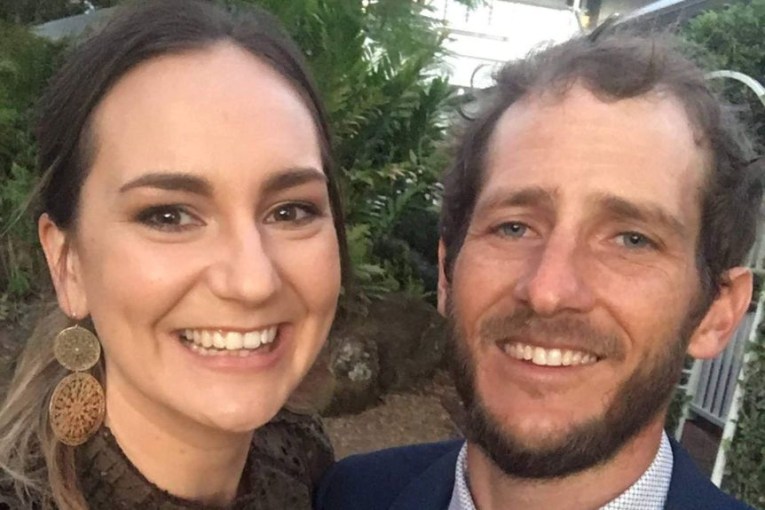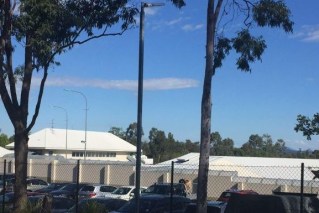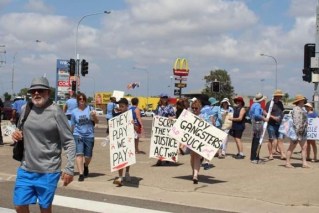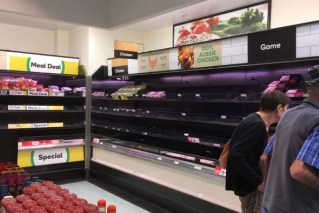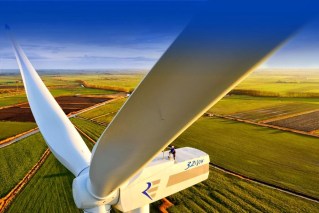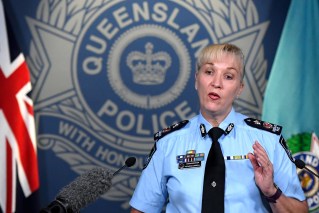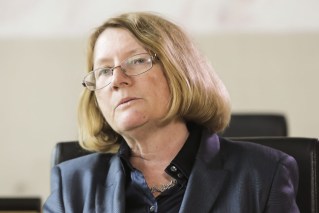Food for thought: Why we can’t fight the apocalypse on an empty stomach
When it comes to visceral reminders of how vulnerable our food systems can be, empty supermarket shelves certainly are a direct bare-knuckled punch to the gut.

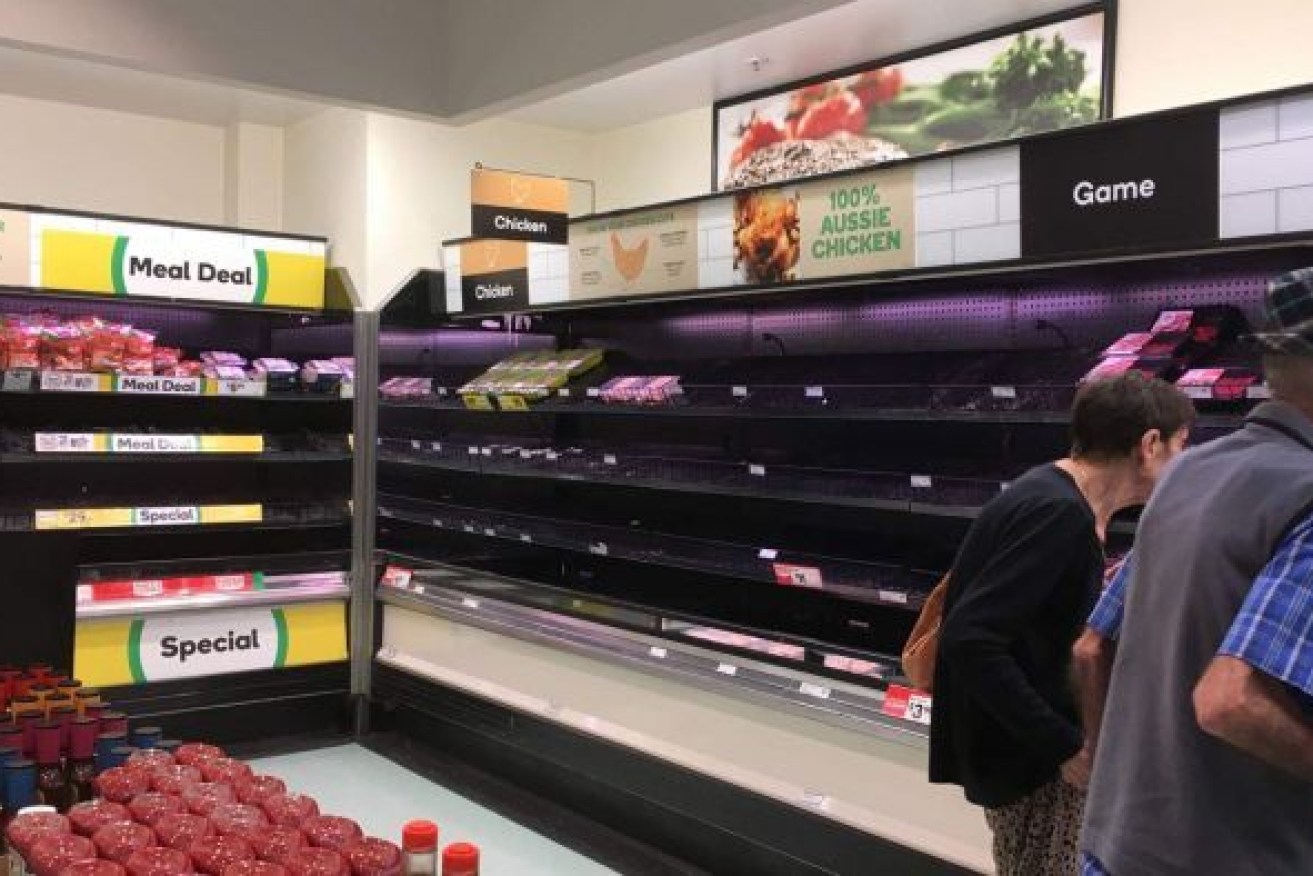
Empty supermarket shelves have nothing to do with our primary producers. Photo: ABC
While we may see this turn of events as a blow to our sense of food security, no one can say that we didn’t see the king hit coming.
The buying public has had two years to ponder the fragility of their food supply chains.
InQueensland wrote about this very subject this time last year, following the volatility of 2020 that saw the first, frenzied rush on our food supplies.
In 2020 it was panic buying. Over Christmas and New Year, it was the result of skittish governments opening up their economies in the face of overwhelming evidence that the more contagious Omicron strain would risk infecting a massive proportion of the workforce.
Neither case has been the fault of farmers not producing enough for the nation’s table.
Despite still chronic labour shortages, especially in the intensive cropping sector, the pandemic at least has not hampered our ability to produce the raw material.
Manufacturing and distribution on the other hand has been a different challenge entirely, especially when factories, abattoirs, distribution centres and freight carriers are hit with more than half their staff on the sick list or isolating and caring for those who are.
Only a wide-scale, natural disaster would have made this calamity worse. That is a result of good luck, not good planning.
Yes, there have been floods, some of them deadly, isolated to specific regional districts, no doubt devastating to those communities in their path.
But so far we’ve been spared wholesale loss of life and property on a scale of the 2019 Black Summer Bushfires or the 2011 floods.
In fact, while the pandemic has raged, our climate, if anything this summer, has been relatively benign.
While two-thirds of Queensland still remains in drought, a cooler wetter summer overall thanks to the La Nina weather system has provided a mantle of comfort that our state has remembered how to rain.
The agricultural economy has responded to the optimism accordingly. Cattle prices reached record highs in January and rain that’s fallen on the state’s grain belt has growers primed for the planting of an enormous winter crop.
But for how much longer can these favourable conditions last? And when they do end, (as climate modelling tells us they must), how prepared are we to deal with the shocks, especially if the pandemic, perhaps with a different variant, is still cultivating discontent and dysfunction?
Given how we’ve responded to Omicron, the odds are not in our favour.
There can be no definitive answer as to where events may head this year, but we can be certain that confronting the pandemic and climate change is inextricably linked.
Scientists have warned for years that pandemics in the 21st century would visit more frequently in tandem with higher levels of urban encroachment on wilderness regions, presumably enabling viruses limited to animals to jump to their neighbouring human hosts.
It is one theory that explains the origins of Covid-19.
Yet the adverse health outcomes of climate change need not be exotic or apocalyptic.
As InQueensland reported last year, doctors in regional Queensland are already documenting the rise of health ailments in people directly related to changes in climate.
People in rural areas, who already confront poorer access to medical help and lower life expectancy than their city counterparts, are more susceptible for the simple fact they live and work closer to the natural environment.
So if we are headed into a future of more frequent climate disasters and pandemic emergencies, then we need a plan, and fast, to ensure farmers remain productive and profitable.
Battling health and climate crises is hard enough. We can’t fight the apocalypse on an empty stomach.
Late last year, with Omicron still bearing down on our doorstep, politicians and commentators had themselves in a lather over commitments to carbon reduction targets.
Prime minister Scott Morrison released a plan to reach net zero emissions by 2050 and announced the nation was on track to achieve its 2030 target, with the central message that behaviour at an individual and business level didn’t need to radically change or adapt.
The message was reinforced by notions that some still to be “invented technological breakthroughs” and yet to be realised “global trends” would carry the nation to at least a third of the way towards the government’s desired outcome.
Labor’s ‘Powering Australia’ climate policy released in December would commit Australia to a 43 per cent carbon reduction by 2030, setting the economy on a trajectory to reach net-zero by 2050.
References to agriculture in the document acknowledge Australian farmers for showing “leadership and innovation” to a point where “industry has raced ahead of Scott Morrison on climate action and the jobs it creates”.
“It’s time our federal government caught up,” the policy’s authors argued.
Agriculture Minister David Littleproud says the policy has too many unknowns, especially for the beef industry, where land could be stripped from producers and their herds shrunk to reach mandated methane reduction targets.
Smaller herds will hurt producers, and cause prices for meat to rise at the checkout, he says, amounting to a “sneaky new carbon tax”.
Labor’s agriculture spokesperson Julie Collins says Littleproud is not being honest, and that Labor has no intention of stripping land from farmers, or mandating methane reductions should they win office this year.
Instead, Labor would invest in “agricultural innovation opportunities” and “drive private demand for offset opportunities for Australian farmers”, a proposal welcomed by the National Farmers Federation.
The NFF had little choice but to climb on board with Labor’s plan and leave Littleproud isolated.
Within days it was announced the peak farmer body would be joining PwC Australia and the philanthropic Macdoch Foundation to conduct one of the biggest research programs of its kind to establish the link between enhancing natural capital and farm profitability.
The collaboration led NFF chief executive Tony Mahar to say:
“Australian farmers are on the front-line of the impacts of climate change. They are also in the box seat to benefit from the opportunities of a reduced emissions future.”
During the same crowded week, in the rush to issue big statements and bold visions before Christmas, the Queensland Government announced Australia’s largest and most advanced animal genomics facility would be built at Ipswich.
The $11 million centre under the ownership and management of Neogen Australasia will work on breeding livestock with enhanced physical traits the industry needs to improve productivity.
The company’s senior director in Australia, Bobby Creasman, has told InQueensland this work could deliver more carbon-efficient cattle in the future – cows with higher performing digestive systems that convert feed into meat faster and emit fewer fumes into the atmosphere.
Other beef companies are fast-tracking plans to achieve the same outcome.
Award-winning Queensland beef company, Stockyard, is launching a bold growth strategy to double its cattle throughput over the next five years while drastically reducing methane.
The family-owned business last year became the first Australian agricultural enterprise to enter into a sustainability linked loan, where financial incentives or penalties are issued by their bank depending on how they perform on their sustainability goals, of which carbon emissions are a key metric.
With cattle emissions representing roughly 70 per cent of the operation’s total carbon footprint, Stockyard will begin trials this year on naturally derived feed additives that are aimed at curtailing the burps and farts that escape from cattle.
Interestingly, the trial will be conducted with assistance from a government bestowed Methane Emissions Reduction in Livestock (MERIL) grant.
In 2021, InQueensland also met up with Dalene Wray, director of OBE Organic at Birdsville.
Wray came to the attention of readers for her efforts to increase blood donations, but as the leader of a major organic beef enterprise, she has been running a sustainability program since 2015.
It’s partly in response to OBE’s export customers in Asia, the US and Middle East who want their suppliers to have a sustainability focus.
“What we’re hearing from consumers around the world is that they want businesses like ours to focus on sustainability,” Wray wrote to her company’s stakeholders before Christmas.
“There is no ‘one size fits all’ when it comes to sustainability.”
On that basis, OBE defines sustainability broader than environmental performance. It encompasses staff health and well-being by being an accredited Mental Health First Aid Skilled Workplace and a business that actively pursues gender balance in its workforce and positions relationships with First Nation’s people and respect for their stories at the heart of its values.
In November 2017, OBE became just the fourth agribusiness to have a Reconciliation Action Plan (RAP) endorsed by Reconciliation Australia.
As the leader of an export-focused business that has to navigate myriad supply challenges both sides of the farm gate, Wray sees embracing digital technology as the key to moving forward.
“A draft digital future plan has been developed to be a tool to help our people proceed with a common purpose in the face of complexity and disruption and truly advance our digital future,” she said.
“It is underpinned by continuous innovation and global and local partnerships.
“Given the influence of a virus that mutates, evolving government regulations, geopolitical tensions and livestock prices at an all-time high, we are doubling down on our mission to help people lead better, healthier lives. What we do well, is still a strong foundation for our future success.”
Queensland Conservation Council director Dave Copeman says the future of the beef industry is going to change as consumers and retailers look for deforestation free and zero emission beef.
“No-one is better positioned than Australian pastoralists to abate emissions. We have the technology and the land, but we need governments to be helping pastoralists adapt to a more profitable future where they can make money by growing trees and running cattle, instead of dividing them.”
Large retailers, such as Coles, Woolworths and McDonald’s have made commitments to reduce their emissions in their products, which means the market for beef is changing, regardless of what is argued within the domestic political bubble.
The industry’s chief marketing and R&D body, Meat and Livestock Australia has committed net zero by 2030.
While agriculture is a big target, as far as emissions are concerned it is not the main game in town, according to Copeman.
“Methane reduction must occur, but the science makes it clear that fugitive emissions from coal mines and gas plants are the priority for methane emission reduction,” he said.
“Agricultural emissions were 12 per cent of Queensland’s emissions, but have only increased 1 per cent between 2005 and 2018, but fugitive emissions from mining and gas increased 93 per cent over the same time, and are 11 per cent of emissions.”
